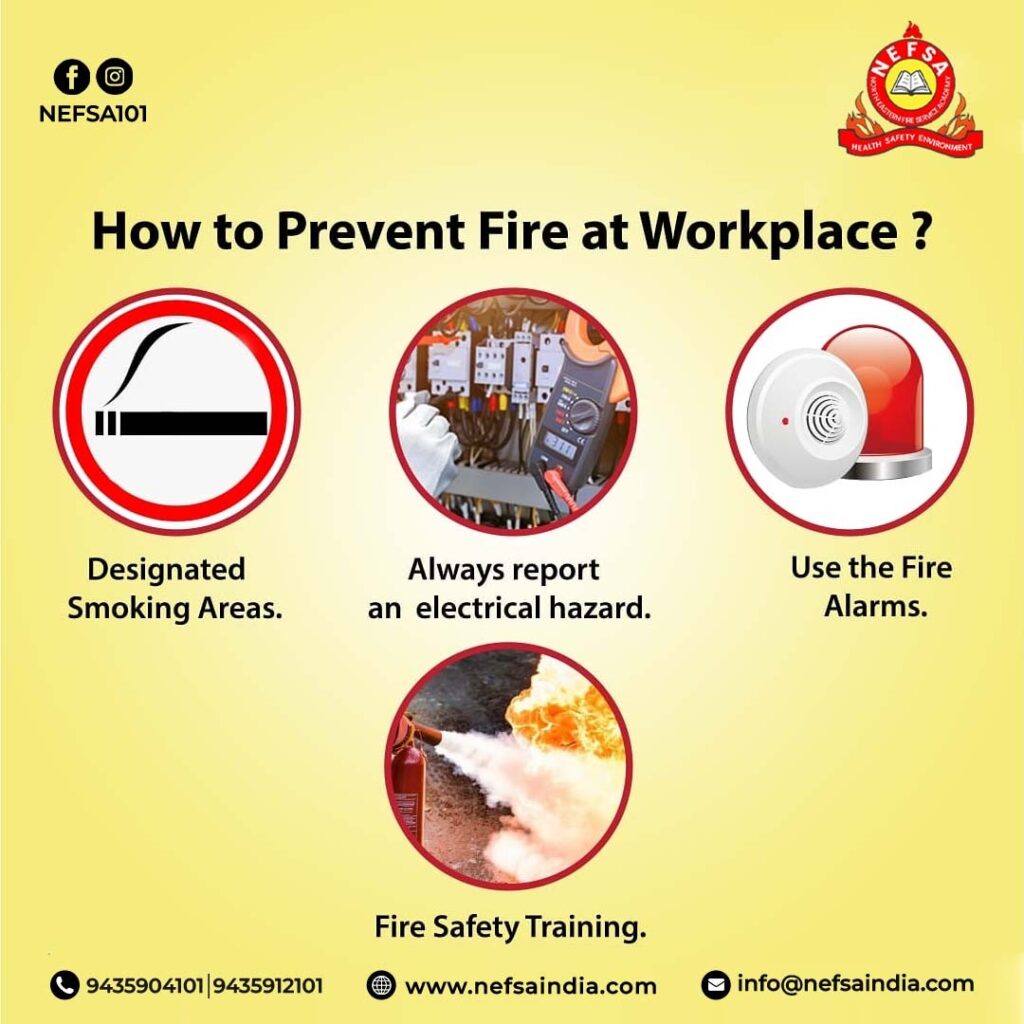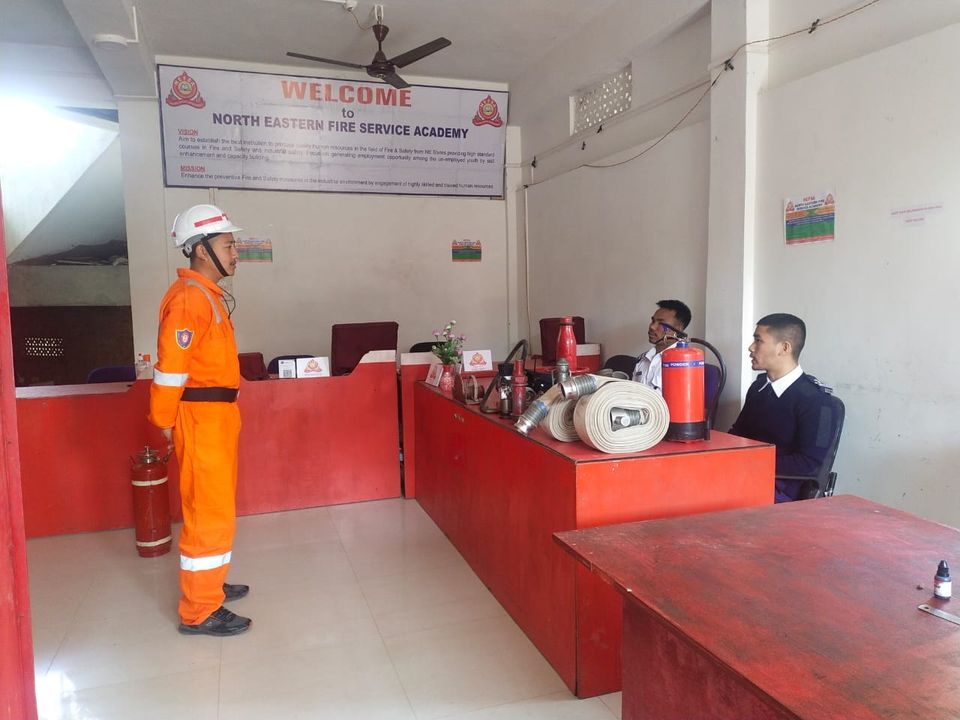For communities and businesses to remain seamlessly connected, telecommunications infrastructure is essential. However, electrical apparatus, power surges, and flammable substances make these buildings vulnerable to fire accidents. Understanding fire safety
in telecommunications infrastructure is crucial for NEFSA (North East Fire and Safety Academy) students in Dibrugarh, North East.
This blog explores the value of providing NEFSA students with fire safety training as well as the steps taken to protect connectivity
in the face of potential fire threats in the telecommunications sector.
-
Recognizing the Fire Risks in Telecommunication Infrastructure:
The abundance of electrical equipment, data centers, and combustible materials found at telecommunication sites makes them vulnerable
to fire outbreaks. Students are educated about the specific fire dangers in telecommunication infrastructure, such as overheating equipment, electrical problems, and arson, through NEFSA’s specialist training curriculum.
-
Implementing Fire Prevention Measures:
For services to continue uninterrupted, telecommunications infrastructure needs to be protected from flames. Students in the
NEFSA program are educated on efficient fire prevention techniques, including routine equipment maintenance, correct cable
management to lower the risk of overheating, and the installation of fire-resistant materials in crucial locations.
-
Emergency Response and Fire Suppression:
A quick and effective emergency response is necessary in the case of a fire to reduce damage and service interruptions. With
the help of NEFSA’s training, students may operate fire extinguishers, fire suppression systems, and emergency evacuation protocols designed specifically for telecommunication facilities.
-
Fire Safety Regulations and Compliance:
It’s critical for providers of telecommunications infrastructure to follow fire safety rules. NEFSA students learn about the
pertinent safety regulations and standards, guaranteeing compliance with national, regional, and worldwide fire safety laws to
protect lives and property.
-
Specialized Firefighting Techniques for Telecommunication Sites:
NEFSA’s training introduces students to specialized firefighting techniques specific to telecommunication infrastructure,
focusing on addressing fires involving sensitive electronic equipment, battery rooms, and data centers.
-
Fire Safety in Data Centers:
Data centers are at the heart of telecommunication infrastructure, and their protection is paramount. NEFSA students receive
specialized training to understand the unique fire risks in data centers and implement fire prevention and suppression measures accordingly.
-
Fire Drills and Emergency Preparedness:
Regular fire drills and emergency preparedness exercises are essential to ensure quick and effective responses to fire incidents.
NEFSA students participate in simulated scenarios to practice their firefighting skills, evacuation procedures, and incident
management, improving their readiness for real-life emergencies.
Conclusion:
NEFSA’s fire safety training for telecommunication infrastructure equips students in Dibrugarh, North East, with the knowledge,
skills, and confidence to secure connectivity and protect critical communication facilities. By understanding the fire risks,
implementing preventive measures, and honing their emergency response capabilities, NEFSA students contribute to the reliability
and resilience of telecommunication infrastructure, ensuring seamless connectivity for businesses and communities in the region. To join our academy click www.nefsaindia.com
Read more blogs at www.nefsaindiablog.com







